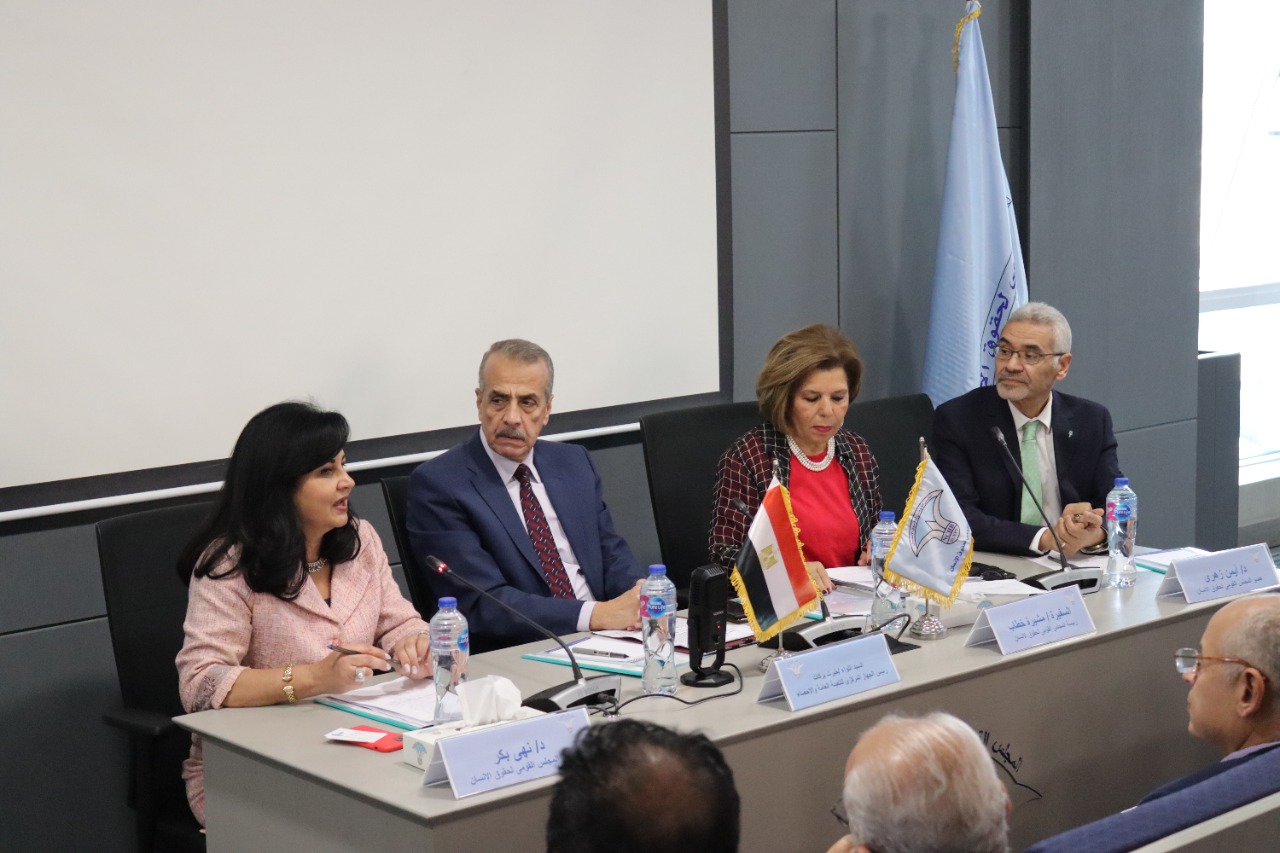
Laying the foundations for joint cooperation between the Central Agency for Public Mobilization and Statistics (CAPMAS) and the National Council for Human Rights (NCHR).
Based on the interest of the National Council for Human Rights (NCHR) to implement the general measures Human Rights, based foremost on the the existence of a central database as the basis for guiding policies, including population policy planning, and within the framework of following up the results of the Egyptian Family Health Survey 2021, which was recently announced by the Central Agency for Public Mobilization and Statistics (CAPMAS).
A scientific symposium was held at the headquarters of NCHR on the first of November, with the participation of Her Excellency Ambassador Dr. Moshira Khattab - President of NCHR, and Mr. Major General Khairat Barakat - Head of CAPMAS, and with the participation of the members of NCHR and representatives from CAPMAS, where the Economic Rights and Social Rights Committees of NCHR held a symposium entitled "The Role of Statistics in Planning to Confront the Population Problem".
The symposium targeted several themes, namely:
First: Learn about the activities of the CAPAMS regarding data collection and its importance to decision makers.
Second: the impact of the population problem on the present and the future.
Third: Presenting the results of the "Egyptian Family Health Survey 2021".
Fourth: Discussing and proposing a set of population and health solutions, procedures, and programs to confront the population problem.
Major General Khairat Barakat reviewed the role of the agency and the provision of data in all social, economic and environmental fields. His Excellency also reviewed several national surveys carried out by the agency, including: the national project for the development of the Egyptian countryside "Hayat Karima" (a decent life), as well as the population and economic census, HE also reviewed the Egyptian Family Health Survey 2021.
A presentation was also made on the current situation of the population problem and its effects, and a presentation on the most important results of the Egyptian Family Health Survey 2021, in the presence of the members of the NCHR and researchers from the NCHR General Secretariat.
The Ambassador/President of NCHR also indicated that this meeting is the most important in the series of meetings held by the NCHR due to the vital importance that the database represents for policy-making.
The two sides agreed to establish a joint committee to enhance cooperation between the NCHR and the CAPMAS to benefit from the indicators issued by the agency, which reflect the economic, social and cultural situation, and represent the basis for guiding policies, especially with regard to the human rights file in various fields, allowing the opportunity to learn about progress and spread community awareness of it.
The symposium recommended an agreement to form a committee of the members of the NCHR and experts of CAPMAS to ensure access to the characteristics of the most vulnerable groups and their distributions and to provide detailed statistical data through which geographical, economic and social data can be identified. It also recommended cooperation to prepare training programs in the field of statistics for workers in the technical secretariat of NCHR. In order to integrate statistical methods and methodologies into a more effective evaluation and follow-up of human rights issues.





 English
English
 Arabic
Arabic
 French
French
